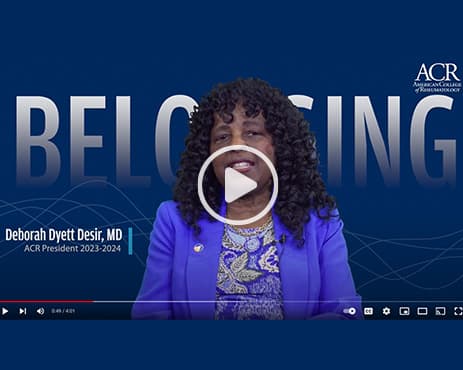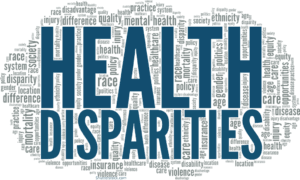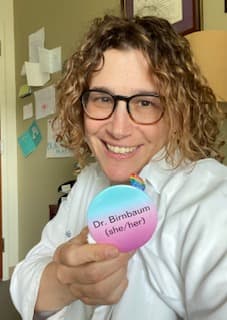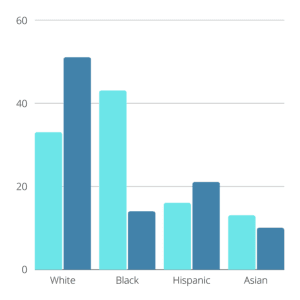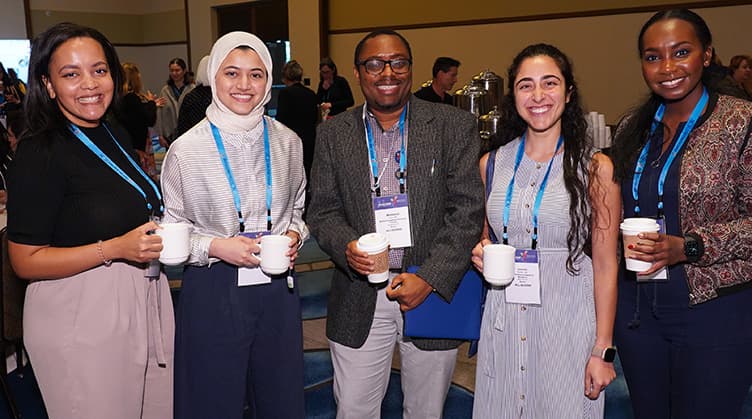
Advancing Diversity, Equity & Inclusion

As the leading authority and trusted partner of rheumatology professionals, the American College of Rheumatology will continuously advance the specialty and the future of rheumatology.
DEI Mission Statement
The American College of Rheumatology will initiate and collaborate to advance diversity, equity, and inclusion in the field of rheumatology, and the membership, leadership, and operations of the College. We will foster a culture of shared ownership and engagement among our members, volunteers, supporters, partners, and patients for advancing systemic change.
Defining DEI at ACR
Diversity
A community of individuals whose skills, expertise, lived experiences and perspectives reflect differences in career stage, professional setting, gender and gender identity, race, ethnicity, physical abilities, sexual orientation, and geographic location.
Equity
Elimination of structural or systemic barriers to:
- Leadership, authorship, presenter, and recognition opportunities within the College.
- Education, training, and career development opportunities for rheumatology professionals from groups that are underrepresented in the specialty or practicing in areas with limited or suboptimal access to rheumatology services.
- Optimal rheumatology care for patients with rheumatic diseases that have been historically marginalized or with limited access to care.
Inclusion
A collaborative and welcoming community that fosters a sense of belonging, seeks diverse perspectives and contributions, and supports the professional growth of each member of the College.
DEI Operational Principles
Every member brings a unique perspective and skillset to advance the organization’s DEI legacy. Together, our leadership, committees and members will:
Within the College
- Develop transparent governance processes that promote equitable access to leadership, recognition, and advancement opportunities within the College.
- Recruit, train and support a diverse group of volunteers that reflect the rheumatology community we represent and the patients they care for.
- Foster a culture that encourages thoughtful discussion, where every member feels heard, valued, and supported.
- Identify and address the impact and effect of conscious and unconscious biases in our decision-making, operations, and product development.
- Initiate and partner to provide member opportunities for self-study and training on topics related to diversity, equity and inclusion for professional and leadership development, and patient care.
- Foster community and organizational participation among members from groups that have been historically marginalized to strengthen the sense of belonging within the College, and the field of rheumatology.
- Reflect diverse perspectives and increase the use of inclusive and culturally sensitive language and imagery in our communications, journal publications, meetings, projects, research initiatives and advocacy efforts.
- Identify and monitor the milestones and metrics that demonstrate the College's progress in operationalizing diversity, equity and inclusion in its work and impact.
Field of Rheumatology
- Initiate and partner to promote solutions that improve access and advancement in rheumatology careers for groups that are underrepresented in the specialty, and professionals in areas with limited access to rheumatology services.
- Initiate and partner to create a culturally responsive rheumatology workforce.
- Amplify the voices of diverse clinicians, educators, researchers, and scholars.
- Elevate awareness of inequities in rheumatic disease burden and outcomes.
- Support research that addresses structural solutions for health inequities among rheumatology patients of diverse backgrounds and in under-resourced communities.
- Advocate for systemic solutions that address barriers to access and utilization of rheumatology services and the provision of equitable care for all patients with rheumatic diseases, recognizing the unique challenges of those from historically marginalized or under-resourced communities.
DEI Policy
The ACR represents a global community. We commit to:
- Fostering an accessible, diverse, inclusive, and safe environment for all, regardless of age, race, ethnicity, gender and gender identity, sexual orientation, physical abilities, nationality, or geographic location
- Creating a diverse faculty of authors, editors, reviewers, and speakers
- Delivering inclusive educational content that is responsive to the ways that data, themes, narratives, and imagery are perceived by audiences of diverse backgrounds, lived experiences, cultures, gender identities, sexual orientations, and physical abilities
DEI Committee Members
- Chair: Ashira Blazer, MD, MSCI, New York, NY (2026)
- Leigh Callahan, PhD, Chapel Hill, NC (2027)
- Yen Chen, PhD, Detroit, MI (2026)
- David Daikh, MD, PhD, Portland, OR (2027)
- Candace Feldman, MD, MPH, Sc.D, Boston, MA (2026)
- V. Michael Holers, MD, Denver, CO (2027)
- Julia Schwartzman-Morris, MD, MS, Great Neck, NY (2026)
- Akanksha Sharma, MBBS, Rochester, MN (2026)
- Aaron Stubbs, MD, Detroit, MI (2026)
The inaugural DEI committee will include liaisons from the following committees:
Collaborative Initiatives, Education/AMPC, Global Engagement, Journal Publications, MarCom, Membership & Awards, Nominations & Appointments (ACR & ARP), Pediatric Rheumatology, Rheumatologic Care, Research, Training & Workforce, Workforce Solutions

